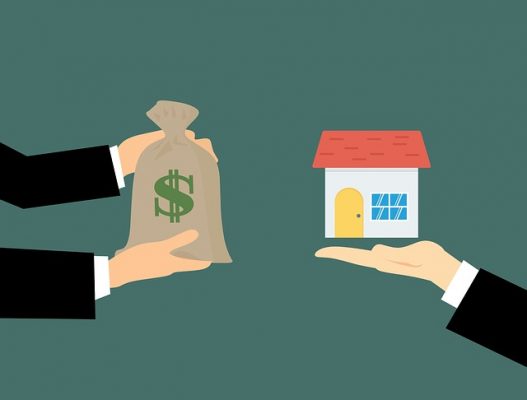You want to buy a house, but you also want to save for retirement. People usually make a choice of what to prioritize and in this case the house usually wins. Well this wasn’t good enough for me, I wanted both.
I was in this very same dilemma when we were buying our first home. If we saved for a down payment then I couldn’t max my 401K. I racked my brain until a light bulb moment flickered on. A 401K loan, the thing everyone tells you to never do, could be leveraged in a way where I can get a win-win scenario.
I’ll show you how and why a 401K loan can be used for your home down payment while padding your retirement accounts.
Don’t Fear the 401K Loan
I am going to reiterate a point here, this is for the person who has to make a choice. A choice between saving for retirement and a house down payment.
There are special rules on 401K loans for home purchases, including longer pay back periods up to 20 years.
I will also tell you here that 401K loans are NOT double taxed. For a great explanation check out 401k Loan Double Taxation Myth.
Also of note, the max 401K loan you can take out is 50% of your vested balance up to a total loan of $50,000.
The 401k
A 401k has a limit to how much you can contribute for the tax advantage each year. Let’s assume people interested here are less than 50 years old. If you are reading this and over 50, no worries, that just means you can contribute an extra $6,000.
As of 2018, the max tax advantaged contribution to a 401k is $18,500.
Don’t forget about an IRA as well. As of 2018 the max contribution is $5,500.
…and an HSA, for an individual it’s $3,450 and family is $6,900 as of 2018.
In my case, I have an individual HSA, so if I want to keep my goal of maxing all my tax advantaged retirement accounts, I’ll need to put away $27,450 a year.
How the heck will I have much left over to save for a down payment to a house?
To the MAX!
If you weren’t maxing out your 401k before, now will be the time. The goal here is pump everything into your 401k with the intention of taking out a loan when it comes time to purchasing a home. There is a catch though, you can only take out a loan on 50 percent of the value. So will it take you twice as long to save for a down payment? Not exactly, here’s why.
For this strategy to best work, you will need to invest into a traditional 401k or your pre-tax equivalent. Let’s assume someone is in the 25% tax bracket. Let’s break it down in really simple numbers.
Person A saves $100 for down payment as cash.
Person B puts $100 into their 401k.
Person B saves 25% since this is pre-tax, meaning they effectively put $75 of after tax dollars.
Person A has $100 that can be used for a down payment. It “cost” them $100.
Person B has $50 that can be used for a down payment. It “cost” them $75.
So yes, it will still be faster for Person A to save the amount of money needed for a down payment, but this will cost them in the future. Remember the contribution limit I mentioned earlier? That limit is an opportunity cost, a once a year chance.
The Price Breakdown
So let’s create a scenario to compare if taking out a 401k loan will save you more money over the long term.
Home Purchase Price: $270,000
Down payment(20%): $54,000
Yearly savings rate: $18,000
Person A: All about that cash
Years to save: 3
401k savings: $0
Cash: $54,000
Person B: all about that 401k
With a yearly savings rate of $18,000, all of that will go to the $18,500 limit on 401k.
On that $18,000 there is a 25% tax savings from it being pre-tax.
Tax savings: $18,000 x 25% = $4,500 extra cash from the pre-tax contribution. This will also be applied to the down payment.
401k: $18,000, loan can only take out 50%, so effective value is $9,000
Effective yearly savings rate: $9,000 + $4,500 = $13,500
Years to save: $54,000/$13,500 = 4 years
Total money value of person B:
401k: $72,000 – half of which can be taken out for a 401k loan for a total of $36,000
Cash: $18,000
Total down payment: $36,000 + $18,000 = $54,000
401k Loan Asset Allocation
Where is the best place to put your money with the intention of taking a loan out on it?
This will ultimately be up to you. If you will be saving for a longer time period like the 4 years in the above example. A larger stock holding should be okay.
If it is a shorter time period then maybe holding a larger bond portion will be the better choice.
Want no risk? Then hold it in a money market fund or something with very little risk.
Where you put the 401k money will ultimately come down to your own risk tolerance.
401k Loan Repayment and Considerations
You will have to repay the loan once you take it out on a per paycheck basis. There usually is a maintenance/servicing fee for the loan. In my case this is $3 per month. Check with your HR person for the exact numbers in your scenario.
At a 5.75% interest rate (current rate at the time of this posting), pulling out $36,000 on a 5 year loan term would be $691.12 per month.
For purchase of primary residence, the loan term can be up to 20 years. For this the repayment amount would be $252.64 per month.
The interest you pay is being paid back to you, so while it does cost you more to pay back the loan with interest, it is still all going to you. You also need to make sure you are able to afford the new house mortgage on top of the 401k loan. Don’t stretch yourself too thin.
How Secure is your Job?
One of the most important considerations is what your job security outlook is like? The 401k loan is usually only valid within your employer. So if you get fired, quit, laid off, or leave your company for any reason you will need to pay the loan back in full. If you aren’t able to re-pay it then it’ll be considered a withdrawal which will incur the full tax amount on top of a 10% penalty.
So please get all the rules of the 401k loan from your employer/HR to make an informed decision.
The True Value of Maxing your 401k
Now that you are fully aware of the risks let’s look at the benefits to this approach.
Person A didn’t max their 401k for 3 years while saving for a down payment.
Person B on the other hand maxed it so they could take a loan out on it.
Let’s use a 30 year time period to see just how much this strategy will save you. I use 30 years because that’s the most popular mortgage length, so let’s match that.
Using an 8% average annual return, the $36,000 will have the full 30 years of growth. This grows to a value of $362,255!
$362,255!
But wait. Won’t Person B have less money to save now since they have to make payments on their loan? Possibly, you’ll need to ask yourself if you are still able to max out your retirement accounts with the addition of the 401k loan payments. Even if you can’t, the loan repayment is still going directly to your retirement accounts, so you aren’t exactly saving less than Person A.
You Need to Decide What’s Best for your Situation
In the end you need to analyze your own situation and make a decision. I wanted to show this to people that a 401k loan can actually be a benefit to your long term savings goals. The lower the loan amount you need the lower risk it will be.
We did this for our first home purchase and took a loan out for $8000. It has worked wonders for us. Without this approach there would be no way to max out our retirement accounts and still be able to buy a house. We also opted for the 5 year repayment plan since the monthly payments were very manageable with the smaller loan.
In the end this was our win-win scenario. We have zero regrets and hope this helps you in your own decision for your very own home purchase. Best of luck to you!



